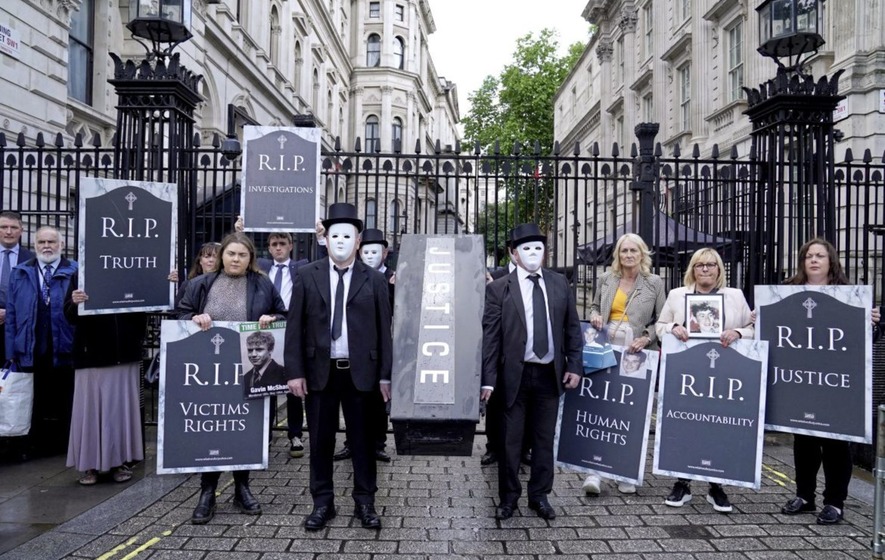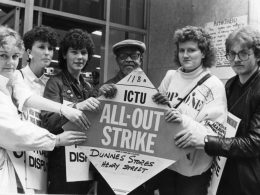The Northern Ireland Troubles (Legacy and Reconciliation) Bill is a historic act of cowardice from the Tories and a slap in the face to anyone who has lost a loved one to the unspeakable violence of the Troubles.
The Bill, introduced by Northern Irish Secretary Brandon Lewis, shuts down inquests and inquiries, civil cases brought by victims‘ families, Police Ombudsman investigations and criminal prosecutions relating to the Troubles. In their place will be a new body, the Independent Commission for Reconciliation and Information Recovery, which will conduct its own investigations. Scandalously, immunity from prosecution will be granted to implicated individuals who cooperate with the ICRIR.
Protecting the state’s dirty secrets
The Tories’ earlier intentions to usher in blanket amnesties for veterans of the Troubles were met with a wave of rejection from the majority in Northern Ireland. The five main political parties in the North as well as the Labour Party re[1]ject the Bill. As such, the Tories have disingenuously presented the reworking of the amnesty issue as a move away from prosecution and toward “information sharing”.
The Bill represents a rotten and corrupt state keen to hide its own sins as well as the crimes against humanity committed by state forces and paramilitaries. The Bill was introduced in the House of Commons on the same day as the anniversary of the Dublin and Monaghan bombings, in which UVF bombings killed 33 civilians. Evidence has been taken seriously by inquiries indicating these attacks were some of countless cases of collusion between British security forces and paramilitary terrorist organisations.
No justice
This #BillOfShame has rightfully been the source of anger from families, victims and survivors groups and human rights organisations; with protests in Belfast, Derry and Westminster. For many, they have been campaigning for decades and in most of the cases justice has not been delivered. This is due to the unwillingness of the British state and sectarian parties in Northern Ireland to open themselves up to scrutiny in their role in the deaths of innocent people. It is also due to the uphill battle that is the capitalist courts system, a painstakingly slow and uncertain process at best.
There can be no true justice under this system which places endless technical roadblocks in front of victims and their families taking cases against perpetrators of sectarian violence against them.
Genuine, democratic inquiries
Inquests and inquiries can play an important role in this context for scrutinising the role of the state in relation to the atrocities of the Troubles. Just last year the Ballymurphy Inquest confirmed what has been known for decades: that the ten murdered by British soldiers were “entirely innocent”.
To acknowledge the legacy of the Troubles and look toward true reconciliation what is needed is a robust system of inquests and inquiries. Importantly, these inquiries should not be in the hands of the state or establishment par[1]ties, but instead of ordinary working[1]class people through bodies made up of trade unionists with records of campaigning with on these issues, human rights organisations and victims and survivors’ groups. True justice and reconciliation starts with real accountability.












